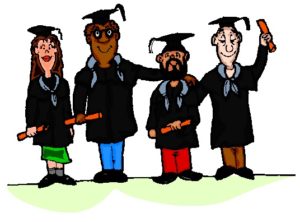 Written by Dr J.P. Nel
Written by Dr J.P. Nel
I read the report by the Council for the Advancement of the South African Constitution regarding the “Restraint of Protest on or near University Campuses”. Admittedly I am not qualified as a legal expert. However, seeing that the constitutional rights of people are regarded as almost sacred by the people who prepared the report, I guess I can air my views as a citizen of the country.
One can probably agree with 90% of what is written in the report. However, it is the remaining 10% that causes damage and instability. Students have the right to protest, but something is clearly wrong when the execution of their rights lead to damages in excess of more than a billion rand.
Let’s look at some clauses in the report.
Clause 6, page 2. “Universities are under a constitutional obligation to tolerate demonstration, picket and assembly.” No mention is made of the resulting injury to people and damage to property. Is that also their constitutional right?
Clause 21, page 9. “Even disruptive conduct can fall within the protection of section 17 of the Constitution.” It is, indeed, a sad day when the purpose for which universities are established, namely to educate people, is destroyed by rights which are no more than entitlements that is seriously damaging to the futures of all students, including those who protest, disrupt, destroy and, recently, rape.
Clause 22, page 9. “… a ‘never again’ Constitution, meant to redress the injustices of the past,…”. South Africa is in a crisis on almost all levels of society, including the economy, education, freedom of movement, and now also legislation. Emotional remarks like this do nothing to promote stability, cooperation and trust which are desperately needed if we are to rid ourselves of the injustices of the past.
Clause 27, page 10. “Prior restraint of protest is generally only permissible where it can be shown that there is an intention to protest violently. The mere assertion that the protest may destroy property or disturb the peace is not sufficient. “And so the poor police are required to react, never to prevent. This is a myopic and dangerous stance, one for which the writers of the repots should be held responsible if a university is set on fire or if anybody is murdered or raped during student protest.
Clause 29, page 10. “However, it remains an open question whether culturally symbolic artefacts carried purely for display or with other non-violent intent, such as ceremonial weapons, or knobkieries, may be carried in a protest.” How would one know in advance why the artefacts are being carried and what the intentions of the carriers are? The same applies to clause 31, page 11.
Clause 34, page 12. “There is no notice requirement when the gathering is spontaneous.” This leaves the door wide open for protesters to simply claim that a protest, for which permission was not granted, was a spontaneous one.
Clause 59, page 17. “The anti-protest order was being used not only against students but also to limit academic freedom of the staff of the University.” Rioting, damaging property and injuring individuals are not academic freedom.
Clause 74, page 21. “Prior restraint against speech should never be granted, unless the interdict specifies the exact statements to be enjoined…” So, I guess hate speech is also fine.
In closing, I always wonder what the agenda of people preparing reports like this really is. Surely it cannot be to promote stability, employment, education and economic growth that South Africa desperately needs. Students need education. I agree that those who perform well should be encouraged with financial incentives. However, destruction and giving them an excuse not to study hard can’t add any value.
 Article by Dr J.P. Nel, MD Mentornet
Article by Dr J.P. Nel, MD Mentornet
 Article written by Dr J.P. Nel, MD Mentornet
Article written by Dr J.P. Nel, MD Mentornet We are delighted at the number of people who already indicated that they would like to enrol for the Bachelor’s degree in Occupational Learning (not the official title). However, it has come to my attention that some students who completed the certificate(s) or diploma in OD ETD are under the impression that they would receive credits for these qualifications and that they, therefore, will need to do only one or two additional years for the degree. This is not the case.
We are delighted at the number of people who already indicated that they would like to enrol for the Bachelor’s degree in Occupational Learning (not the official title). However, it has come to my attention that some students who completed the certificate(s) or diploma in OD ETD are under the impression that they would receive credits for these qualifications and that they, therefore, will need to do only one or two additional years for the degree. This is not the case. Well what do you know? A professor at a university wrote me an email the other day in which he professes that occupational learning can never be the foundation for a degree course. Well, I happened to have studied occupational learning towards my second doctoral thesis. How then, can it not be the foundation for a lower level qualification?
Well what do you know? A professor at a university wrote me an email the other day in which he professes that occupational learning can never be the foundation for a degree course. Well, I happened to have studied occupational learning towards my second doctoral thesis. How then, can it not be the foundation for a lower level qualification? Last week I listed the principles of adult learning. Here we will discuss the totality principle.
Last week I listed the principles of adult learning. Here we will discuss the totality principle. Written by Dr J.P. Nel
Written by Dr J.P. Nel Private learning providers previously suggested that we name and shame people who do not act honestly. Lynel mentioned in her stacks of communications that the QCTO will in future not allow accredited providers to help others. I posted a name and shame article on Skills Universe last week, which was probably removed because I never saw it and nobody responded to it. Mentornet always helped emerging providers because we feel that, seeing that they get the contracts, the least we can do is to provide them with quality training materials. Believe me, it does not make financial sense and the problems that it creates for you far outweigh the satisfaction that you get from helping others. This week we received the following email (names deleted for obvious reasons) from a learner who attended a course offered by Don Leffler (name intentionally added):
Private learning providers previously suggested that we name and shame people who do not act honestly. Lynel mentioned in her stacks of communications that the QCTO will in future not allow accredited providers to help others. I posted a name and shame article on Skills Universe last week, which was probably removed because I never saw it and nobody responded to it. Mentornet always helped emerging providers because we feel that, seeing that they get the contracts, the least we can do is to provide them with quality training materials. Believe me, it does not make financial sense and the problems that it creates for you far outweigh the satisfaction that you get from helping others. This week we received the following email (names deleted for obvious reasons) from a learner who attended a course offered by Don Leffler (name intentionally added): One can probably write a book on the principles of adult learning and few people have time to read that much. Therefore, I will begin by just listing and briefly explaining them. I will discuss each principle separately in the weeks to come and you are invited to share your opinions, experiences and knowledge about the topic with us. Here they are.
One can probably write a book on the principles of adult learning and few people have time to read that much. Therefore, I will begin by just listing and briefly explaining them. I will discuss each principle separately in the weeks to come and you are invited to share your opinions, experiences and knowledge about the topic with us. Here they are. People with qualifications in trades, such a mechanics, carpenters, electricians, etc. are often utilised as lecturers at TVET Colleges and instructors or trainers at industries that offer training. Some of them are even posted as training managers, assessors, learning materials developers, etc. This is fine seeing that they are the experts with lots of experience in their respective fields. There is, however, a huge difference between teaching and doing. You all know the old joke about those who can, do and those who can’t, teach. In reality the other way around often proves to be even more difficult.
People with qualifications in trades, such a mechanics, carpenters, electricians, etc. are often utilised as lecturers at TVET Colleges and instructors or trainers at industries that offer training. Some of them are even posted as training managers, assessors, learning materials developers, etc. This is fine seeing that they are the experts with lots of experience in their respective fields. There is, however, a huge difference between teaching and doing. You all know the old joke about those who can, do and those who can’t, teach. In reality the other way around often proves to be even more difficult.